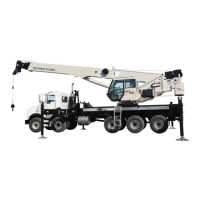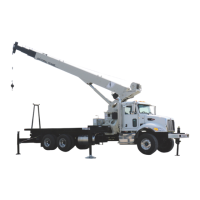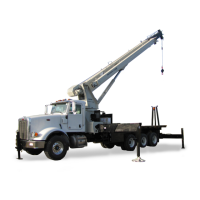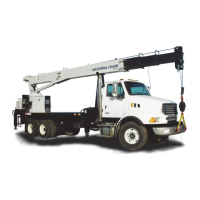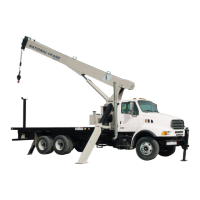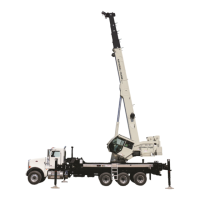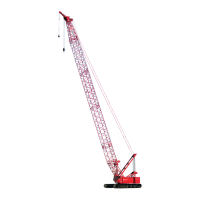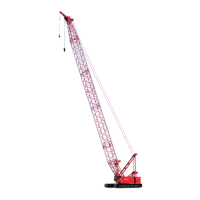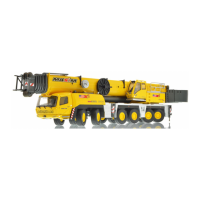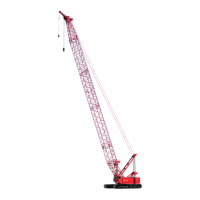6-8 3-29-2018 Control # 610-00
SET-UP NBT40-1 SERIES OPERATOR MANUAL
will wear into the rope causing damage to the rope and
eventual failure.
.
4. Insert the end of the wire rope into the socket, form a
loop in the rope, and route the rope back through the
socket allowing the dead-end (Figure 6-5) to protrude
from the socket. Ensure the dead-end of the rope is of
sufficient length to apply end treatment to the dead-end
after the wedge has been seated.
5. Insert the wedge into the loop and pull the live-end of the
rope until the wedge and rope are snug inside the
socket. It is recommended that the wedge be seated
inside the socket to properly secure the wire rope by
using the equipment’s hoist to first apply a slight load to
the live-end.
6. After final pin connections are made, increase the loads
gradually until the wedge is properly seated.
7. The wire rope and wedge must be properly secured
inside the socket before placing the equipment into
lifting service. It is the wedge that secures the wire rope
inside the socket. The dead-end treatment is used to
restrain the wedge from becoming dislodged from the
socket should the rope suddenly become unloaded due
to the headache ball or hook block striking the ground,
etc; refer to “Dead-end Rigging” 6-8.
Dead-end Rigging
Sketches A through F (Figure 6-6) illustrate various ANSI
approved methods for treating the dead-ends of wire ropes
which exit a wedge socket assembly. While use of the loop-
back method is acceptable, care must be exercised to avoid
the loop becoming entangled with tree branches and other
components during equipment transport and with the anti-
two block system and other components during use of the
equipment.
Of the methods shown below, Manitowoc prefers that
method A or F be used, i.e., clipping a short piece of wire
rope to the dead-end or using a commercially available
specialty wedge. Typically, it is recommended that the tail
length of the dead-end should be a minimum of 6 rope
diameters but not less that 15.2 cm (6 in) for standard 6 to 8
strand ropes and 20 rope diameters but not less than
15.2 cm (6 in) for rotation resistant wire ropes.
When using method A, place a wire rope clip around the
dead end by clamping a short extra piece of rope to the rope
dead end. DO NOT CLAMP THE LIVE END. The U-bolt
should bear against the dead end. The saddle of the clip
should bear against the short extra piece. Torque the U-bolts
according to the table titled Wire Rope Clip Torque Values
(Table 6-1).
Other sources for information with which equipment users
should be familiar and follow is provided by the American
Society of Mechanical Engineers, American National
Standard, ASME B30.5, latest revised. ASME (formerly
ANSI) B30.5 applies to cable ways, cranes, derricks, hoists,
hooks, jacks, and slings. It states, in section 5-1.7.3, “(c)
Swagged, compressed, or wedge socket fittings shall be
applied as recommended by the rope, crane or fitting
manufacture.” Wire ropes are addressed in ASME B30.5,
section 5-1.7.2, ROPES, it states, in pertinent part, “(a) The
ropes shall be of a construction recommended by the rope or
equipment manufacturer, or person qualified for that
service.” Additional information is published by the Wire
Rope Technical Board in the Wire Rope Users Manual, latest
revised edition.
Dead
End
Dead
End
Live End is
Entering
Wrong Side
Live
End
20 x Rope Dia
Minimum
RIGHT
WRONG
FIGURE 6-5
Wedge Socket
Table 6-1
Wire Rope Clip Torque Values
Clip Sizes Torque
mm Inches Nm lb-ft
3.18 1/8 6 4.5
4.76 3/16 10 7.5
6.35 1/4 20 15
7.94 5/16 40 30
13.28 3/8 60 45
11.11 7/16 90 65
12.70 1/2 90 65
14.29 9/16 130 95
15.88 5/8 130 95
19.05 3/4 175 130
22.23 7/8 300 225
25.40 1 300 225
28.58 1-1/8 300 225
31.75 1-1/4 490 360
38.68 1-3/8 490 360
38.10 1-1/2 490 360
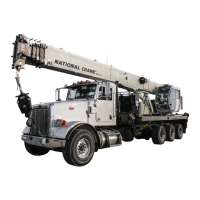
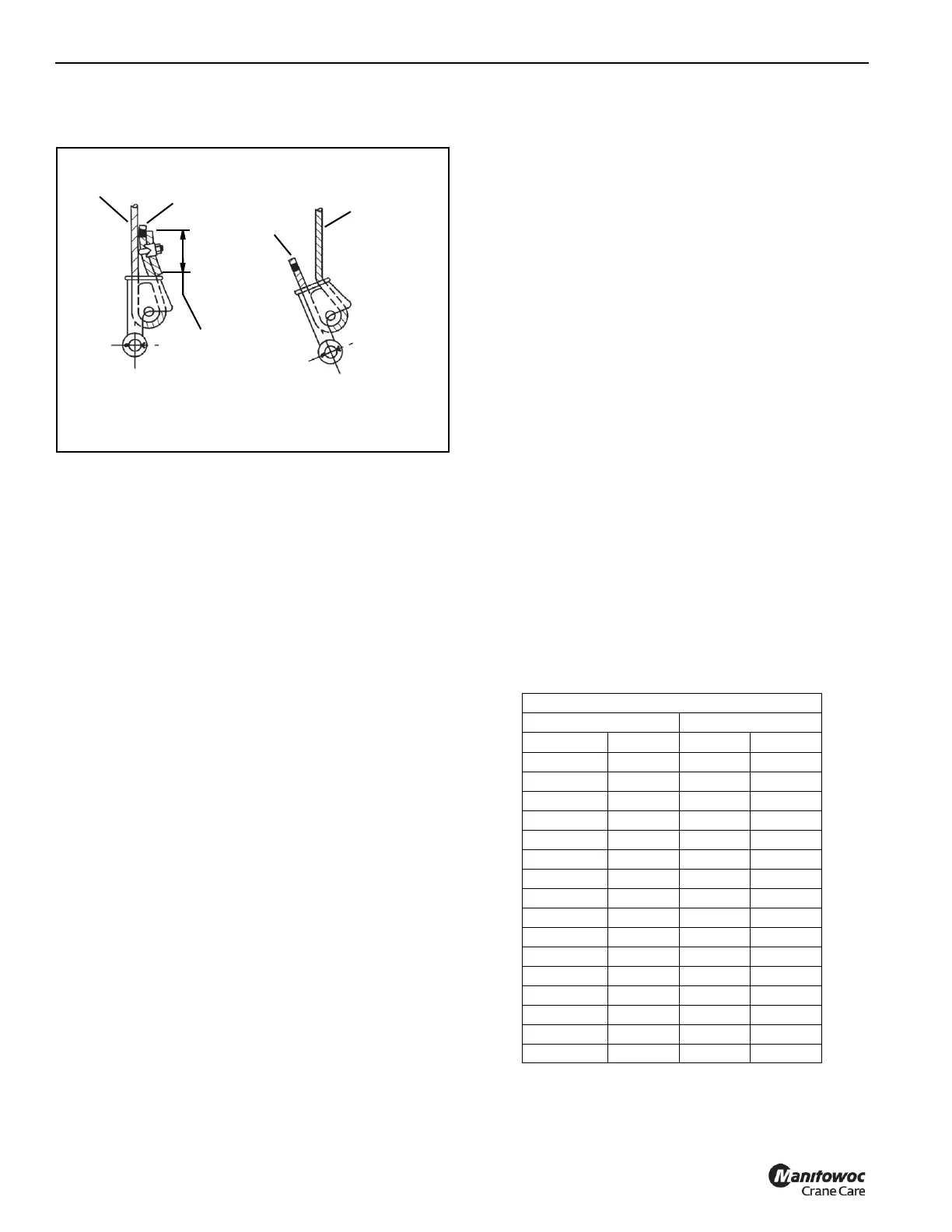